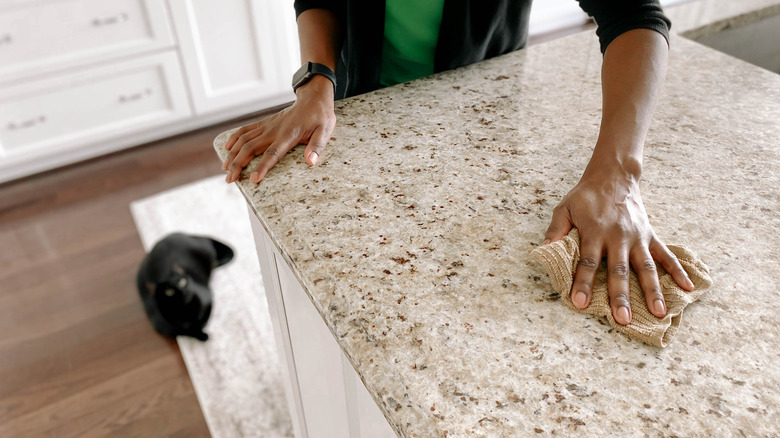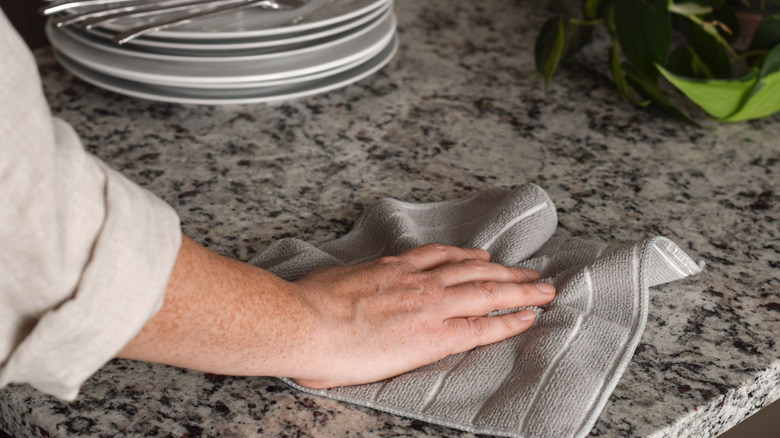Avoid Cleaning Granite Countertops With This Pantry Staple (And What To Use Instead)
Granite countertops may be a durable aesthetic choice, but they come with a few caveats. While cleaning your kitchen with vinegar offers an organic solution to mold, germs, and stains, granite tops the list of surfaces you shouldn't treat with it. When vinegar comes into contact with stone, it sets off a chain reaction of damage that can compromise your counter's integrity. First, it eats away at the sealant that protects your granite from stains and gives it shine. Next, it begins to etch the stone itself, leaving pockmarks and rings. Over time, it can erode the structure of your countertops entirely, potentially forcing you to replace them.
Though granite is physically tough against everyday kitchen wear, like dropped pots or the occasional knife slip, it is particularly vulnerable to harsh cleaning methods. Even abrasive tools like scouring pads and steel wool can damage the surface, so gentler solutions are always best. Fortunately, you don't need to resort to strong cleaners, as plenty of other options are available.
For everyday cleaning, simple dish soap and a microfiber cloth are ideal. Dish soap is as gentle as it gets, and a microfiber cloth provides just enough abrasion to remove stuck-on food without harming the sealant.
What to use when cleaning granite countertops
If you want to tackle stubborn stains or deep clean your natural stone countertops, you may already have the right supplies in your pantry. Olive oil can both clean your kitchen and give your countertops a beautiful shine. You don't need to use your expensive bottle of cold-pressed, high quality olive oil, and just a few drops can cover a large area. Fresh oil is particularly effective at removing old, stubborn oil stains that have damaged the sealant, as it penetrates and loosens them for removal. Simply add a small amount to a soft cloth and buff the surface in circular motions to refresh the sealant. Be careful not to overdo it, as puddles or streaks of oil can leave stains.
For especially tough, stuck-on stains, try making a poultice from baking soda and water. Mix three parts baking soda with one part water, apply the paste to the stain, and let it sit for a few minutes. Then wipe and rinse the area to remove everything from old curry stains to water rings.


